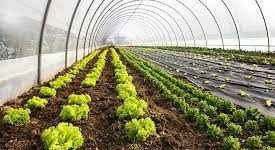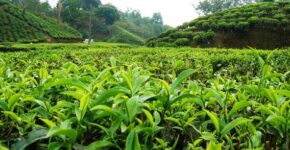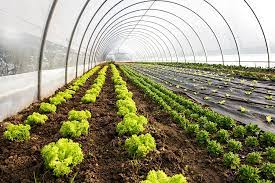Overview
Tea being cash crop and having paramount impact on economy & ecology needs synchronization of technology by industry to support the nature based industry.
Cultivation conversion of Conventional to Organic farming helping – soil>plant> pruning>labourer> owner benefits> economy de-stress > overall business.
Trial Journey with WARKEM Products for Tea Plantation in India
- Break through approval for initiation of trials at ANDREW YULE KHOWANG T.E in 2014 ( A GOVT. OF INDIA UNDERTAKING COMPANY )
- 2015 : FULLY SATISFIED RESULTS WITH HIFOLIAR SPARAY ON 80 YEAR OLD SEGEMNT OF GARDEN WITH HIGHER YIELD.
- Trial orders of 150 kgs of Hifoilar received from three different TEA gardens.
- 2016 -17: BECOMING ASSOCIATE MEMBER OF TOCKLAI RESEARCH ASSOCIATION .
- ANDREW YULE has approved HIFOLIAR brand as Bio stimulant in their Annual rate contract and tender
CONTD:
2017- 18: TRA STARTED AND COMPLETED EXPERIMNETAL RESEARCH OF HIFOILAR WITH ZNSO4 , WITH UREA & ONLY HIFOILAR – YIELD WAS ALMOST 9 % UP THAN CONVENTIONAL .
( Theoflavins & Theorubigins ratio was maintained ) so Aroma, Briskness & Color was in line of requirement after the spray( please refer report)
2018: FEBRUARY ONWARDS STG OF UPPER ASSAM STARTED USING HIFOILAR & YELOOW GLUEE PADS FOR PEST CONTROL
2019: SECOND PHASE OF TRIALS BEGINS WITH TRA AT BORPETTA TE ( JORHAT) FOR WARKEM PRODUCTS : SOIL ORGANIC SUPPLEMENT( SOS)/ HUMIKURE/ GLUEE PAD ( BLUE & YELLOW)/ CATCH BUG ROLL ( YELLOW).
BENEFITS
- Soil pH maintenance.
- TR/TF/ Caffeine is maintained as it is required.
- Our Users has found growth in Green/ Black Tea.
- Oolong & White is yet to be done.
- Increse in yield is good for STGs & FARMs aswell.
Pending trials to be begin with new season i.e from Feb 2020 /March 2020 at TRA ( JORHAT) ASSAM,INDIA
- Bio pesticides.
- (TRICHODERMA / VERTICILLIUM LECCANI/ B BASSIANA)
WARKEM OBJECTIVE
Holistic development of STGs of ASSAM & West Bengal and self help group by providing solution for sustainable farming and balancing ecology Organic farming is a system which avoids or largely excludes the use of synthetic inputs (such as fertilizers, pesticides, hormones, feed additives etc) and to the maximum extent feasible rely upon crop rotations, crop residues, animal manures, off-farm organic waste, mineral grade rock additives and biological system of nutrient mobilization and plant protection.
Organic farming
Need
Increase in population make compulsion to stabilize agricultural production, but to, increase it further, in sustainable manner.
Natural balance needs to be maintained at all cost for existence of life and property. Agrochemicals which are produced from fossil fuel and are not renewable and are diminishing in availability.
Key characteristics
Protecting the long term fertility of soils by maintaining organic matter levels, encouraging soil biological activity and careful mechanical intervention.
Providing crop nutrients indirectly using relatively insoluble nutrient sources which are made available to the plant by the action of soil micro-organisms.
Nitrogen self-sufficiency through the use of legumes and biological nitrogen fixation, as well as effective recycling of organic materials including crop residues and livestock manures Weed, disease and pest control relying primarily on crop rotations, natural predators, diversity, organic manuring, resistant varieties and limited (preferably minimal) thermal, biological and chemical intervention.
ORGANIC FARMING PRINCIPLE

Four principles
1. Principle of health
Organic Agriculture should sustain and enhance the health of soil, plant, animal, human and planet as one and indivisible
Healthy soils produce healthy crops that foster the health of animals and people.
Health is the wholeness and integrity of living systems. The role of organic agriculture, whether in farming, processing, distribution, or consumption, is to sustain and enhance the health of ecosystems and organisms from the smallest in the soil to human beings.
2. Principle of ecology
Organic Agriculture should be based on living ecological systems and cycles, work with them, emulate them and help sustain them.
This principle roots organic agriculture within living ecological systems.
It states that production is to be based on ecological processes, and recycling
Nourishment and well-being are achieved through the ecology of the specific production environment. Organic management must be adapted to local conditions, ecology, culture and scale.
Inputs should be reduced by reuse, recycling and efficient management of materials and energy in order to maintain and improve environmental quality and conserve resources Organic agriculture should attain ecological balance through the design of farming systems, establishment of habitats and maintenance of genetic and agricultural diversity.
3. Principle of fairness
Organic Agriculture should build on relationships that ensure fairness with regard to the common environment and life opportunities. This principle emphasizes that those involved in organic agriculture should conduct human relationships in a manner that ensures fairness at all levels and to all parties – farmers, workers, processors, distributors, traders and consumers
It aims to produce a sufficient supply of good quality food and other products.
Natural and environmental resources that are used for production and consumption should be managed in a way that is socially and ecologically just and should be held in trust for future generations Fairness requires systems of production, distribution and trade that are open and equitable and account for real environmental and social costs.
4. Principle of care
Organic Agriculture should be managed in a precautionary and responsible manner to protect the health and well-being of current and future generations and the environment.
Organic agriculture is a living and dynamic system that responds to internal and external demands and conditions. This principle states that precaution and responsibility are the key concerns in management, development and technology choices in organic agriculture
Basic Steps of Organic Farming
Organic farming approach involves following five principles:
1. Conversion of land from conventional management to organic management
2. Management of the entire surrounding system to ensure biodiversity and sustainability of the system
3. Crop production with the use of alternative sources of nutrients such as crop rotation, residue management, organic manures and biological inputs.
4. Management of weeds and pests by better management practices, physical and cultural means and by biological control system
5. Maintenance of live stock in tandem with organic concept and make them an integral part of the entire system





